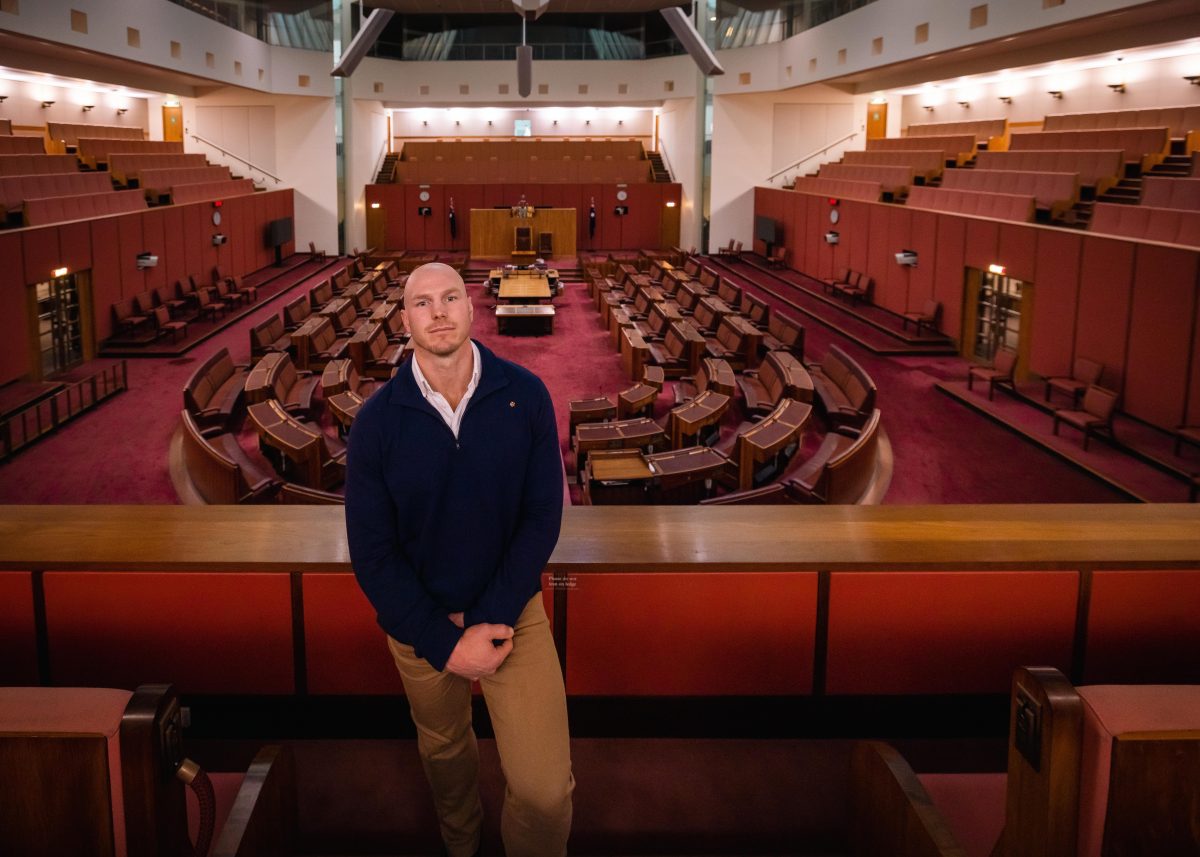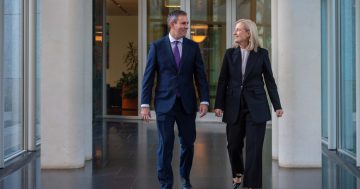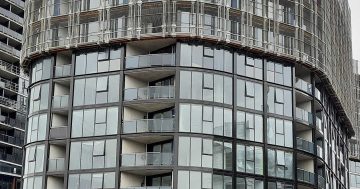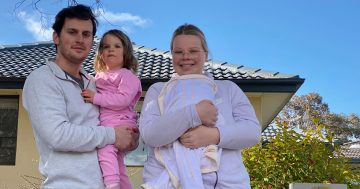
Independent Senator David Pocock has suggested a middle path on negative gearing tax concessions. Photo: Lincoln Magee.
ACT independent Senator David Pocock has proposed a “middle path” to negative gearing, saying the investment property tax concession doesn’t have to be scrapped.
Instead, he suggests modest adjustments to what he has described as “overly generous” concessions for investment property owners.
Tinkering with the tax, as opposed to wiping it altogether, would save billions of taxpayer dollars that could be directed towards housing supply, he said.
“It’s not that we either scrap the whole thing or we don’t touch it,” Senator Pocock said during an ABC Radio interview on Friday (27 September).
“There’s a sensible middle path to reform.
“We are in a housing crisis and I’m concerned politicians aren’t clocking just how bad this is across the country …
“For so long, housing has been an investment vehicle, a way to build wealth, rather than a human right that is actually affordable and accessible to Australians.
“More and more people, even people who’ve done well, are realising that this isn’t working for us.”
Senator Pocock has previously suggested a cap on negative gearing be set at one property.
He says that, combined with some other related housing tax measures, could add $16 billion to the government’s bottom line over a decade.
The independent Senator has been championing changes to housing policy for some time, saying the crisis is worsening.
He recently urged the government to consider key amendments to its Build to Rent legislation to ensure it delivers more affordable housing benefits and better outcomes for tenants.
“Supply constraints in the face of growing demand are driving a continued sharp deterioration in the affordability of housing to both buy and rent, tipping more households into mortgage and rental stress and exacerbating the homelessness crisis,” he said.
“Responding effectively to this crisis requires all governments to pull all available policy levers in response – no single measure will solve it.
“Build to Rent has the potential to play a role in addressing the housing affordability crisis, but only if we get the policy settings right.”
Senator Pocock recommended revising the definition of affordable tenancies to ensure they are available to moderate-income earners, with at least 20 per cent allocated to low-income earners.
That would mean rents would be set at up to 74.9 per cent of market value or no more than 30 per cent of household income, whichever is lower.
His other proposed amendment was to lower the managed investment trust withholding tax rate concession to 10 per cent and ensuring a level playing field for domestic super funds.
Labor’s Build to Rent legislation and its Help to Buy Bill have both stalled in the Senate, much to the frustration of the Federal Government.
Anthony Albanese appeared to open the door earlier in the week to possible changes to negative gearing concessions.
The immediate backlash saw the Prime Minister subsequently move to say he had no plans to alter the tax.
Pressed further on Friday morning, Mr Albanese didn’t want to talk about it.
“Just for clarity, what we are doing is what we have before the Parliament. So I talk about what we’re doing, not what we’re not doing,” he said at a media conference when asked about negative gearing.
“What we’re doing is trying to get our legislation through the Parliament as part of our $32 billion Homes for Australia Plan.
“Now there are two key pieces of legislation. One is Build to Rent. Now what that’s about is providing incentives for the private sector to make sure that there’s increased supply.
“And the second is our Help to Buy Scheme. That’s about 40,000 people getting assistance to buy their own home. Now the Housing Australia Future Fund, that’s the third part of just one, there’s more than three parts, but that goes to social housing.”
Asked again whether he planned to change negative gearing, the PM responded: “Well, I’ve said what we’re doing, and I’ve said what we’re not doing. What we’re doing is very clear, which is our Homes for Australia Plan.
“That is what we are doing. I am saying what we are doing, and I’m saying that is our focus, and our only focus is on that.”





















